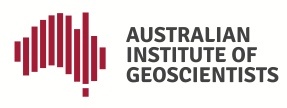Careers in Geoscience: Resources
Resource geologists are employed by organisations working within the minerals extraction and consulting industries. They are responsible for developing and estimating the quantity and quality of mineral deposits. Their work is most commonly office based either on a mine site, or in a corporate office. The resource geologist is reliant on the exploration geologist and mine/project geologist to provide high quality drilling, sampling, geological, structural and quality data to generate a 3D estimate of tonnes and grade/quality that is in turn used by mining engineers to estimate the value of economically extractable material.
Activities
The resource geologist is typically not a raw graduate, as the skills needed to be able to interpret all the requirements of a Mineral/Coal Resource require exposure to many facets of geology including the raw data collection. A resource geologist often starts their career as an exploration or mine geologist.
Typical duties for a resource geologist include:
- Collating and interpreting with exploration and mine geologists the geological setting and detailed 3-D locations of the material of value
- Liaising with exploration and mine geologists to confirm validity of the data
- Interpreting quality of data through statistical analysis
- Using mining industry software packages to develop wireframes/grids and block models to enable the estimation of quantity and quality
- Use geostatistics to assist in defining the modelling parameters and to optimise the model through iteration
- Report on methods used and results of modelling exercises
- Provide input to project teams to develop resource models through Concept, Pre-feasibility and Feasibility stages
- Resources audits
Skills Required
The job carries a high level of responsibility, as the employee carries the responsibility to develop what are commonly public statements of value through the Mineral Resource estimate. A Resource Geologist needs to have a broad exposure to different geological settings, a detailed understanding of appropriate software use, geostatistical skills, and be able to identify areas of potential flaws in areas ranging from sampling, analytical, geometallurgical, geotechnical, and engineering.
Typical skills required are:
- Knowledge of a range of geosciences and their applications
- Ability to work within a multidisciplinary team of scientists and engineers
- Good organisational skills
- High level of mining software and general computer literacy and ability to analyse numerical and graphical data
- Good written and verbal communication skills
- Geostatistics
- Operations mine geology background a key in both Open Pit and Underground

